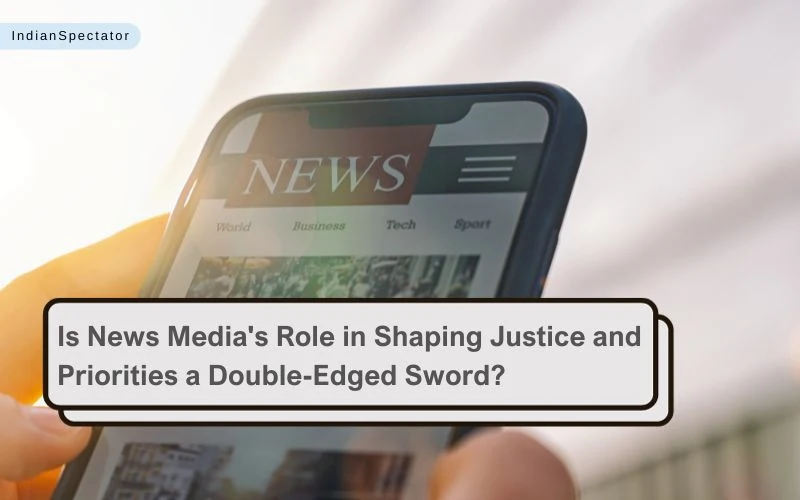In our information-driven world, news platforms play a crucial role in keeping the public informed about significant events and issues. Whether it’s a university protest, a murder case, or a financial scam, news media often serves as our primary source of information. However, this reliance on the media places an immense responsibility on them – the responsibility to deliver information accurately, present all sides of the story, and outline the chronological events. When this responsibility is taken lightly and sensationalism, conjecture, and scandal replace facts and figures, news media can inadvertently create its own “alternative” justice system.

The Power of Prioritization
One of the most significant powers wielded by news media is the ability to determine what is considered important in the eyes of the public. By choosing to cover one story more extensively than another or by ignoring certain events altogether, news media guides the public’s perception of what matters. This prioritization can have far-reaching consequences as policymakers often follow suit.
For example, when a small town faced a sudden surge in cyberbullying cases targeting local teenagers, news media’s focus on a single high-profile case involving a celebrity’s child dominated headlines. This coverage brought attention to issues related to online harassment, prompting legal action and public interest. Meanwhile, the broader problem of cyberbullying in the town received minimal coverage. Authorities were preoccupied with the celebrity case, and many overlooked the suffering of numerous other victims. Thus, while justice was served in one instance, the systemic issue of cyberbullying persisted.
Media as a Business
News media operates not only as a service but also as a business. Like any other business, it seeks sustainability and aims to meet certain numerical targets. However, the ethical responsibility of providing accurate information sometimes takes a backseat in the race to capture viewership and TRPs (Television Rating Points).
In today’s dynamic media landscape, every news organization strives to be the first to report “breaking news” and attract the most viewers. Consequently, journalism ethics can be overlooked, leading to sensationalism or the undue sensationalization of stories. An example of this was the media’s coverage of a tragic industrial accident in a small town. Despite ongoing investigations into the incident’s cause, the media engaged in speculative reporting, potentially undermining the due process of law.
Media as a Double-Edged Sword in Justice
News media can be a potent tool for justice. It has the capacity to expose criminals, highlight loopholes in investigations, and push for accountability. For instance, during a corruption scandal involving local officials, media scrutiny led to a reevaluation of the case. Similarly, investigative journalism exposed a network of illegal gambling dens, leading to arrests and prosecutions. Local news outlets played a crucial role in studying the issue of corruption and holding wrongdoers accountable.
However, media’s influence can sometimes be detrimental. The Supreme Court has criticized the media for creating high-pressure situations that sway verdicts based on public opinion rather than facts. This was evident in a controversial criminal trial, where the media-driven narrative influenced the verdict. Similarly, in a high-profile fraud case, the trial court convicted the main accused primarily due to media and public pressure, despite limited evidence.
Media’s Real-Life Impact
What the news media chooses to focus on has real-world consequences. It affects public perception, court judgments, and government actions. Verdicts have been overturned when courts reconsider cases after media coverage subsides, as seen in the high-profile fraud case. Likewise, the government’s stance can change based on media coverage; legislative changes addressing cyberbullying gained momentum after media attention shifted away from the celebrity case.
In conclusion, while news media’s vigilance and intention to serve the public good are commendable, excessive and unfair coverage can have unintended negative consequences on justice. The media’s power to shape priorities and perceptions underscores the need for responsible and ethical journalism in a world where information flows ceaselessly.